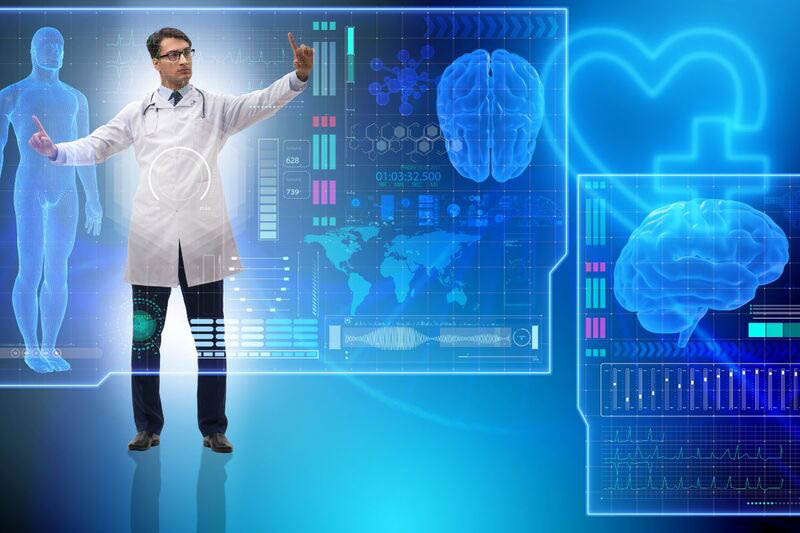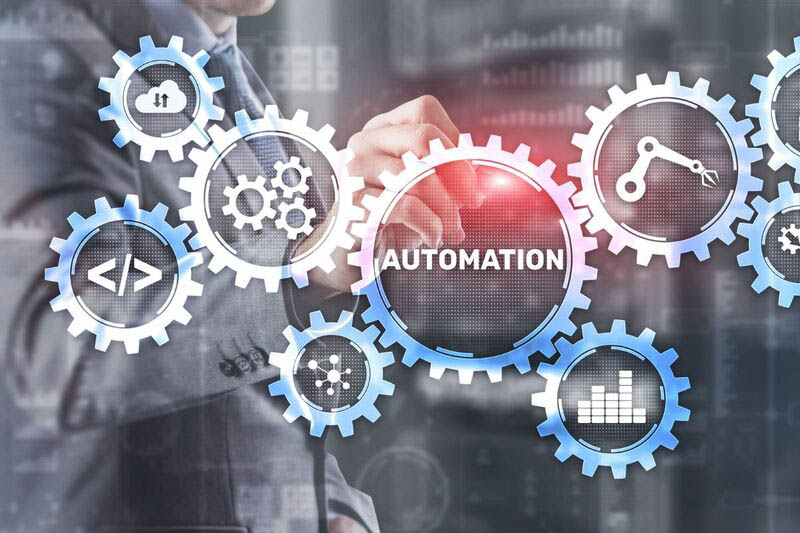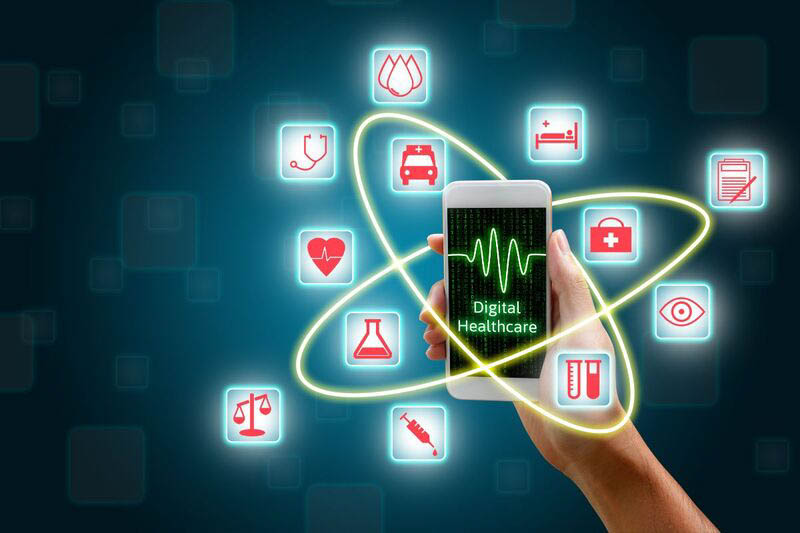AI has the potential to have a significant effect on the healthcare industry. It has the power to enhance the quality, efficiency, and accessibility of healthcare services. Moreover, it can open the way for new discoveries and achievements. This article from Nexle Corporation will discuss every aspect in which AI is helping healthcare. We will also cover some of the challenges and dangers of artificial intelligence in healthcare.
Artificial Intelligence Use Cases in Healthcare
1. Healthcare Virtual Assistant
The healthcare industry is gaining many advantages from the utilization of NLP and conversational AI. Within the next three years, the use of virtual assistants is expected to grow rapidly. Artificial intelligence in healthcare will assist in making symptom checking and triage quicker and more cost-effective. In addition, the hospital can immediately know which patients need urgent medical attention and which can wait for primary care.
Conversational AI assists patients and physicians in selecting the best appointment time and location and helping them call a taxi to get there. It offers additional recommendations as a bonus. It guides patients on how to prepare for their visit, such as suggesting ways to make the process faster, advising on appropriate dress, and listing items they should bring along.

How can AI be used in healthcare?
2. Automated Scheduling
Companies in the healthcare industry will utilize automated scheduling. Thanks to technology, they can shift priority from retail to primary care. AI technology in healthcare will prepare a time and send notifications and reminders when schedules align. As a result, we will be successful in spending much less time and money on health services.
3. Integrating Omics, EHRs, and Wearables
Using EHRs and data from wearable devices, AI will integrate omics and biochemical studies, including metabolomics, genomics, and transcriptomics. Patient phenotypes might be differentiated using wearable data combined with omics data. And this data collection via pervasive sensing devices will continue to increase in importance. In this approach, artificial intelligence used in healthcare could play a role in the processing and synthesis of such multidimensional data.
4. Cancer Studies Documentation by AI

Artificial intelligence in healthcare makes studies easier
Determining if a patient meets the criteria for a clinical trial can be a lengthy process. It involves assessing multiple variables about the patient and sometimes requires reviewing their complete medical history. However, finding the specific information needed from vast amounts of unorganized data can be challenging. It’s been reported that less than 5% of patients actually meet the necessary requirements for these trials due in part to this difficulty.
Seattle’s Fred Hutchinson Cancer Center implemented NLP in Amazon Comprehend Medical to swiftly and efficiently match patients with clinical cancer studies from vast amounts of unstructured clinical record data. Doctors could analyze around 10,000 patient records every hour using natural language processing to locate those who met the inclusion criteria.
5. Diagnosing and Managing Kidney Disease with AI
Through the analysis of unstructured data, doctors and nurses may better diagnose patients and create individualized treatment plans. During this period, a lot of customers are trying to measure this data so that they can structure it. Digital imaging data from radiology, histology, and even smartphone cameras are analyzed by AI and ML and used by nephrologists and other medical professionals to make diagnoses.

Data can be analyzed via images with the help of AI in healthcare
AI techniques, like NLP, are used to gain understanding from unstructured texts. These technologies analyze data from structured lab results and electronic health records. To evaluate the arterio-venous vascular access that leads from the patient to the dialysis machine, the Renal Research Institute (RRI) leverages deep learning on photos captured with smartphones and tablets.
Within seconds, a user will decide based on the analysis performed by a convolutional neural network (CNN). A cloud-based CNN gets the images from the tablet or smartphone and returns the appropriate answer.
Read more: Artificial Intelligence in Robotics: Top 6 Use Cases and Future (2023)
Benefits of AI in the Healthcare Industry
Providing User-Centric Experiences
Artificial intelligence in healthcare has the potential to personalize care for individuals and maintain their engagement. By analyzing extensive data, such as patient records, photos, lab tests, and symptoms, AI can expedite and accurately diagnose health conditions. It can also help identify the most suitable treatments based on patient’s unique characteristics and desired outcomes. This enables a tailored approach to healthcare delivery.

AI technology in healthcare can enhance customer satisfaction
AI technology is used in healthcare to offer virtual assistance, feedback, reminders, and support. This can be done through chatbots, apps, or voice assistants to enhance patient satisfaction and loyalty. Additionally, interactive platforms and simulations can be used to improve healthcare professionals’ decision-making abilities, education, and training.
Improving Efficiency
AI’s automation and simplification can assist healthcare organizations in optimizing their resources, cutting costs, and reducing errors. Administrative tasks like appointment scheduling, billing, coding, documenting, and reporting can all potentially benefit from artificial intelligence in healthcare.
AI innovations have made it possible to detect and correct errors in patient medications, ensuring safer self-medication. This technology also enhances surgical safety by enabling doctors to operate in small spaces. Another area where AI in health is valuable is patient flow management. It can estimate demand and capacity and allocate resources accordingly.

Doctors can operate the hardest case with AI in healthcare
Connecting Disparate Healthcare Data
Data from many different sources, including health records, genetic information, habits, and environmental influences, may be integrated and analyzed using artificial intelligence. As a result, it may be easier to come up with unique concepts and find the latest data than it would be otherwise.
By expediting processes and minimizing experimentation expenses, artificial intelligence offers substantial potential in the medical sector. It can advance the creation of pioneering drugs, technologies, and treatments by recognizing disease patterns, prevalence, and treatment outcomes, thus potentially refining population health and public health policy.

Separated data can work together with artificial intelligence in healthcare
Challenges for Artificial Intelligence in Healthcare
The healthcare industry is investing more and more in artificial intelligence development services to handle many complicated tasks. However, the latest technology has some particular challenges that must be addressed.
Data Privacy
Artificial intelligence systems collect sensitive health data that might be violated without proper protection. In addition, adequate safety precautions must be implemented to prevent private patient information from falling into the wrong hands.

Challenges of AI in the healthcare industry
Patient Safety and Accuracy
Patient safety and accuracy issues are the highest priority when applying AI to healthcare. AI systems must be provided to spot patterns in medical data, comprehend the interconnections between various diagnoses and therapies, and provide effective, patient-specific suggestions.
Integration with Existing IT Systems
Integrating AI with pre-existing information technology systems may make things even more complicated for healthcare professionals since it is necessary to have an in-depth understanding of how the underlying technology works to guarantee that everything runs smoothly.
Physician Acceptance and Trust
Last but not least, the mainstreaming of AI in healthcare depends on the approval and trust of medical professionals. The AI system must inspire trust in doctors by giving them reliable instruction. For this reason, AI’s decision-making process must be made public so doctors can verify that it is based on the most recent and reliable medical evidence. The ethical use of AI systems that are not harmful to patients is only possible if they are utilized following government regulations.

AI technology in healthcare should be reliable
Government Regulations of AI
AI regulation in the United States and Europe is set to become stricter. The Food and Drug Administration (FDA) will be responsible for approving medical devices, going beyond the scope of medical decision support systems. This poses a challenge for companies developing medical AI.
Read more: How To Develop AI Software In 6 Easiest Steps?
AI is transforming healthcare in various ways. It has the potential to improve the lives of millions worldwide, promoting longer and healthier lifespans. However, it’s important to address and minimize the challenges and risks associated with using artificial intelligence in healthcare. Ensuring AI’s safe and ethical development and utilization in wellness scenarios is vital.
Instead of replacing human judgment and understanding, AI should enhance and complement these qualities. AI should not be perceived as an enemy or something to be afraid of but rather as a collaborator and a partner. The only appropriate applications of AI are for positive purposes and promoting self-determination rather than being used for malicious intent or exploitation. By doing so, we can harness AI’s potential for good and contribute to preserving humanity in the long run.


